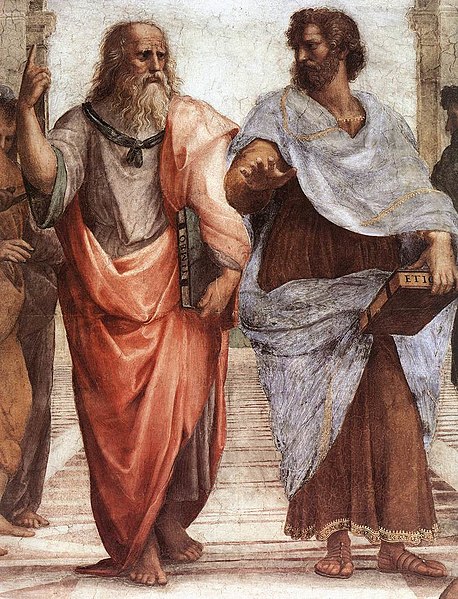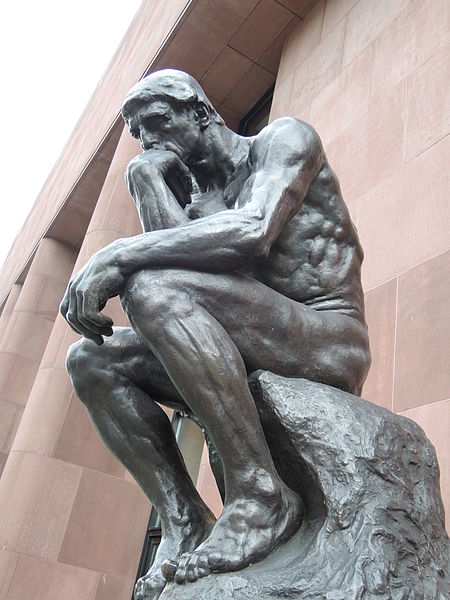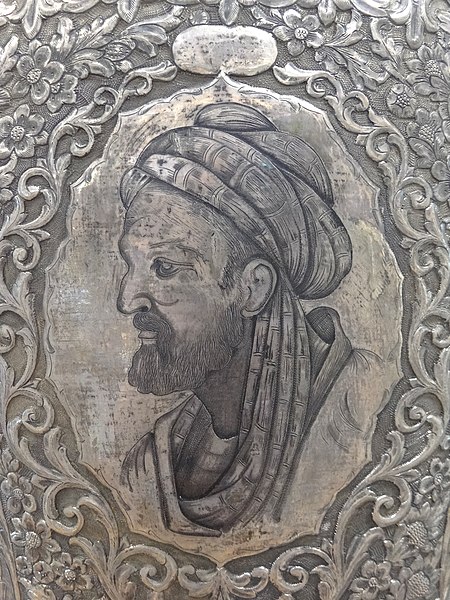The history of philosophy is the systematic study of the development of philosophical thought. It focuses on philosophy as rational inquiry based on argumentation, but some theorists also include myths, religious traditions, and proverbial lore.
Plato (left) and Aristotle (right) gesturing to illustrate the differences in their ideas as the two founders of Western philosophy, detail from the School of Athens
Thomas Aquinas developed a comprehensive system of scholastic philosophy.
John Locke is sometimes seen as the father of empiricism.
Georg Wilhelm Friedrich Hegel developed the philosophy of absolute idealism.
Philosophy is a systematic study of general and fundamental questions concerning topics like existence, reason, knowledge, value, mind, and language. It is a rational and critical inquiry that reflects on its own methods and assumptions.
The statue The Thinker by Auguste Rodin is a symbol of philosophical thought.
Physics was originally part of philosophy, like Isaac Newton's observation of how gravity affects falling apples.
Aristotle was a major figure in ancient philosophy and developed a comprehensive system of thought including metaphysics, logic, ethics, politics, and natural science.
Portrait of Avicenna on a silver vase. He was one of the most influential philosophers of the Islamic Golden Age.








